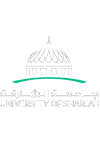As part of SAIL, topics in the field of AI are introduced to the general public in a simple language and interactive manner. In this talk, Alowais tackled the concept of Big Data in terms of its definition, characteristics, and usability. She then addressed the way astronomy generates data through space-based and ground-based telescopes. Among them is the to-be-in-function Square Kilometer Array in South Africa and Australia, which is expected to generate two terabytes and 157 terabytes per second, respectively. In addition, projects like the Euclid Mission and the Large Synoptic Survey Telescope will likely generate tremendous data. If the Event Horizon Team project, which produced 4-5 petabytes, required the shipment of hard drives by air, how would incoming data from future telescopes be handled? With that in mind, she also pointed out how SAASST is partaking in Big Data in Astronomy through its tools and instrumentations, such as the Ionosonde, GNSS receiver, and optical and radio telescopes, to name a few. Alowais shed light on the importance of developing international plans to account for the Big Data that is yet to come. She also stressed the importance of equipping astronomers with data analysis tools, which will soon become necessary.
Monday, 10 April 2023 11:33
Big Data in Astronomy Lecture Mrs. Aisha Al-Owais
Continuing the series of lectures during the holy month of Ramadan, Mrs. Aisha Alowais from the SAASST Space Artificial Intelligence Laboratory (SAIL) presented a lecture titled “Big Data in Astronomy.”
Published in
SAASST News



